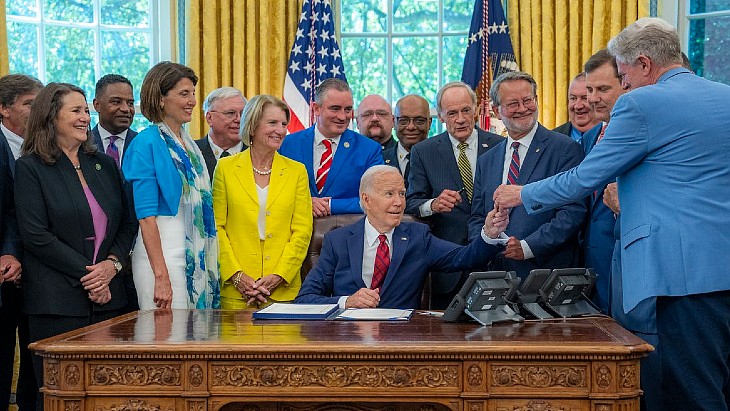Canadian, US nuclear regulators enhance cooperation
The Canadian Nuclear Safety Commission (CNSC) and the US Nuclear Regulatory Commission (NRC) are to expand their existing cooperation. Under a recently-signed memorandum of understanding, they will enhance their exchange of technical information and cooperation in nuclear safety matters.
The MOU was signed on August 7, 2017, by NRC chairman Kristine Svinicki and on August 9, 2017, by CNSC president Michael Binder.
The CNSC said the new MOU recognizes and builds on previous arrangements for the exchange of technical information and cooperation in nuclear safety matters.
"Once in place, each participant may request unclassified safety-related information from the other participant on any matter related to the peaceful use of nuclear energy within the other participant's jurisdiction including, but not limited to, information on nuclear power plant designs, legislation, regulations, technical reports, and more," the CNSC said. "In addition, the MOU describes how information and intellectual property rights may be used."
The USA and Canada signed a nuclear cooperation agreement in July 1955 and the NRC and CNSC signed an MOU in March 2007 for technical cooperation and exchange of information. This MOU - which concerns areas such as standards for health safety, security, safeguards, and the protection of the environment with respect to nuclear facilities and fissionable and radioactive substances - was amended in April 2012.
In June 2009, the two organisations signed a technical arrangement for the exchange of classified information and last October they signed an MOU for cooperation and exchange of information in nuclear security, safeguards and non-proliferation matters.
The CNSC maintains similar MOUs with nuclear regulators in many other countries, including: Argentina, Australia, Brazil, China, Finland, France, Indonesia, Israel, Jordan, Romania, Russia, South Africa and the UK.
According to the CNSC, these arrangements provide a framework for bilateral cooperation, and provide parties with assurances regarding the security of information exchanged, as well as enhanced clarity about responsibilities regarding visits and costs related to cooperation initiatives, among other benefits. While these arrangements are not legally binding, they nonetheless represent serious political commitments, it said.
Researched and written
by World Nuclear News










_50521.jpg)

